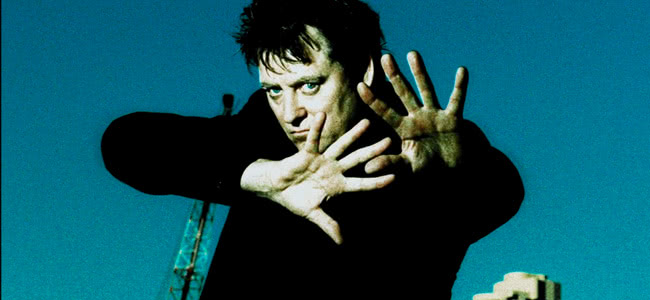Doc Neeson, the lead singer of iconic Australian rock band, The Angels, has died of brain cancer at the age of 67.
The frontman behind some of the band’s biggest singles, such as ‘Am I Ever Gonna See Your Face Again?’ and ” was originally diagnosed with a brain tumour in January 2013, is treatment leading t the cancellation of a national tour with The Angels.
The singer reportedly passed away “peacefully” this morning at 7.15am according to a statement issued by friend and publicist Catherine Swinton.
“It is with deep sadness and regret that the family of Angels’ singer/songwriter Bernard ‘Doc’ Neeson – loving father, family member and friend to so many – announce he has passed away in his sleep at 7.15am today,” read the statement. “Loving father, family member and friend to so many…”
“He has battled with a brain tumour for the last 17 months and sadly lost his fight this morning He will be deeply missed by his family and partner, Annie Souter, who would all like to thank everyone for their support through this dark time.”
Neeson had undergone surgery to remove the cancerous tumour from his brain earlier this year, but in April it had been confirmed that the tumour had made a “life threatening” return.
The singer’s condition and treatment was chronicled in A Very Good Rascal, an episode of ABC’s Australian Story documentary series, as News Ltd reports, in which Neeson said “the news is grim, but some people can get through this, and that’s the way I try to think about things … so I’m looking forward optimistically to the future.”
Last March, Neeson released his first new music in seven years, in his ‘Walking In The Rain’ single, performing the song on SBS’s popular music quiz show RockWiz.
Born Bernard Patrick Neeson in Belfast in 1947, ‘Doc’ moved to Adelaide with his family at the age of 13. It was in the same city that The Angels first rose to prominence, out of the ashes of Neeson-fronted bands The Moonshine Jug and String Band in the early 1970s.
By 1975, The Angels were officially born, and a year later they released their breakout single ‘Am I Ever Gonna See Your Face Again?’, the band had a string of hits through out the ’70s through to the ’90s, including ‘Take a Long Line’, ‘Marseilles’, ‘Shadow Boxer’, ‘No Secrets’, and a cover of Eric Burdon’s ‘We Gotta Get Out Of This Place’.
On New Year’s Eve 1999, Neeson announced his departure from The Angels at the MGM Grand Darwin Millennium Concert after suffering a severe spinal injury from a car accident in Sydney earlier that year. Following a recovery, Neeson returned to the live arena in 2001 as part of Canberra’s Tour of Duty Encore! concert at the Australian War Memorial.
In 2003, he’d formed Doc Neeson’s Angels – a splintered version of the famous pub rock band that continued on and off with various lineups over the next decade – while the Brewster brothers, Rick and John, continued touring with the original Angels lineup, with Dave Gleeson in the frontman role.
Shortly after Neeson’s cancer diagnosis last year, a selection of Aussie rock A-listers – including Jimmy Barnes, Rose Tattoo, members of Midnight Oil, Choir Boys, and more – organised a Rock For Doc charity benefit concert at Sydney’s Enmore Theatre to raise money for Neeson’s treatment.
A statement from Neeson’s children – Dzintra, Daniel, Aidan and Kieran – issued this morning read: “We love you Dad. You couldn’t have made any of your sons more proud of you if you tried. May your beautiful soul rest in peace sweet angel, fly high.”
Update 04/6: Rick and John Brewster have issued their own tribute to Doc Neeson today, in a statement issued on The Angels’ official website.
“Doc stood out as one of a kind, a totally unique performer. His feverish stage presence was unsurpassed yet beneath the public persona was a gentle soul,” writes Rick Brewster. “He leaves behind a wealth of shared memories. Good times, hard times and the thrill of creating timeless music together.”
John Brewster called Doc “one of the great frontmen of all time, a dynamic, demonic, artistic and imposing performer who would give it his all night after night, totally spent at the end of each show. There was a deep, sensitive and gentle side to Doc. In this sad time of his passing I’ll remember him for that and the good times we had together, now and forever more.”




































